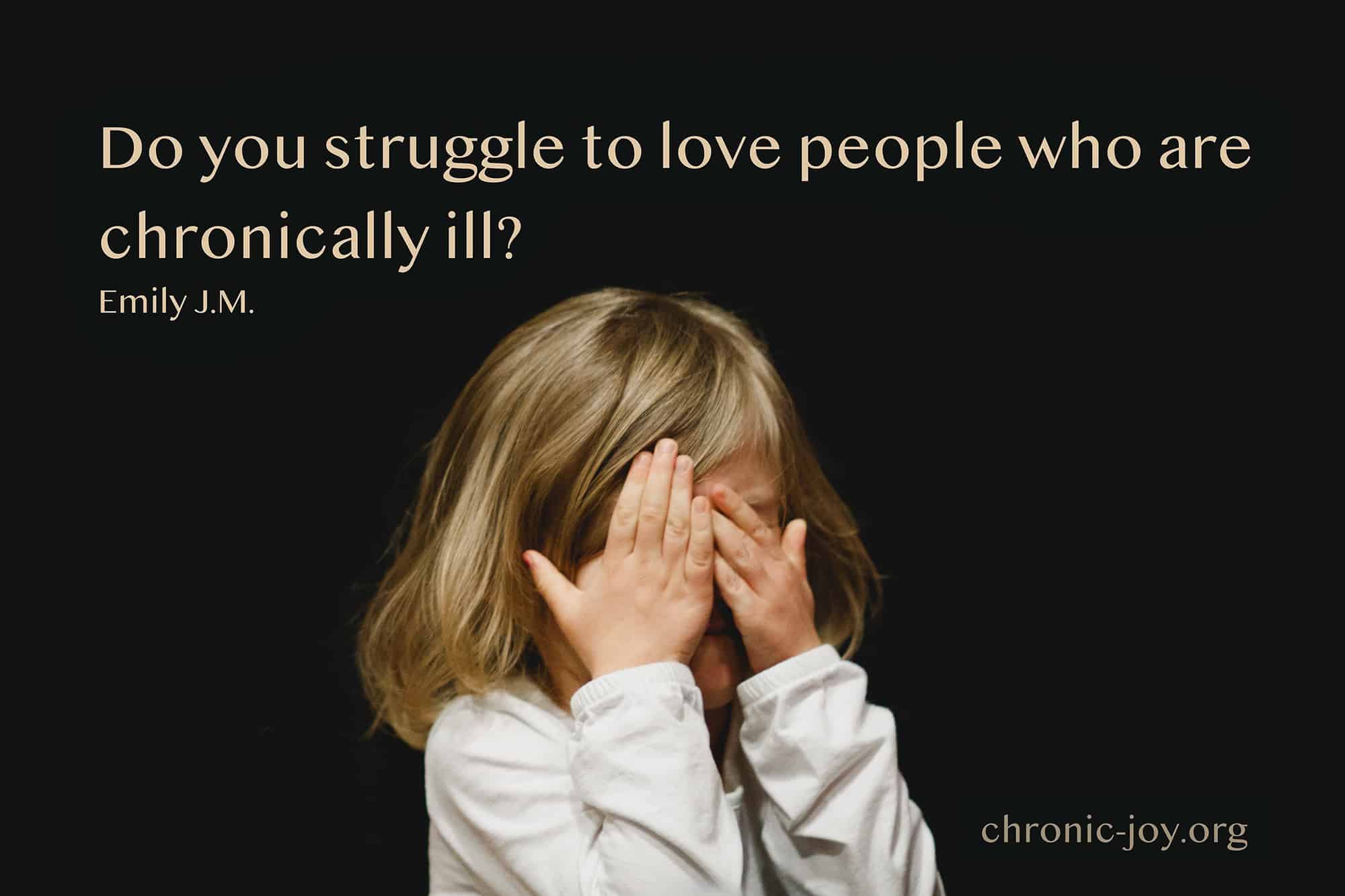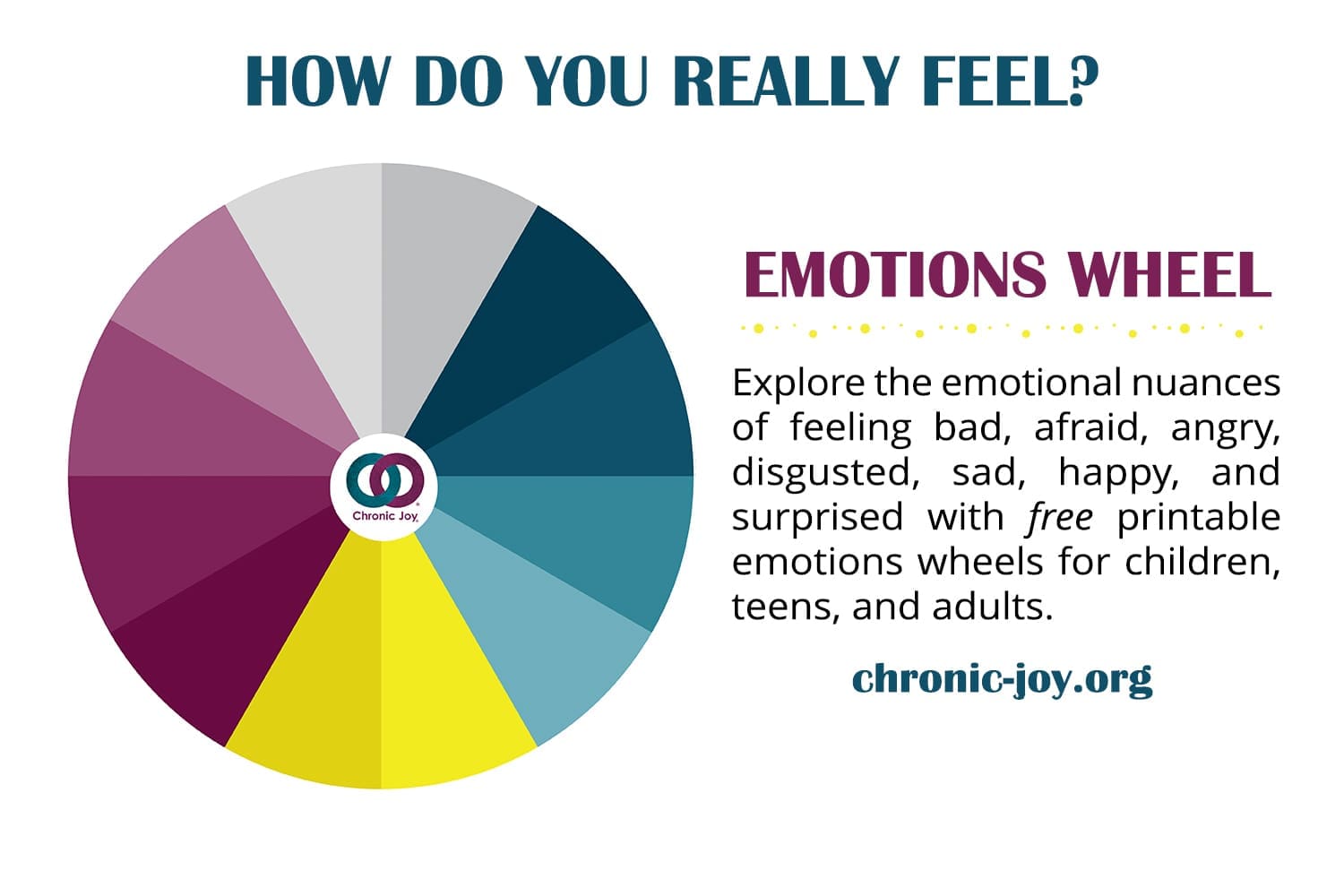
Do you struggle to love people who are chronically ill? ~ Emily J. Maurits
Do you struggle to love people who are chronically ill?
I hate my chronically-ill family member.
Have you ever thought the above sentence? Maybe not in those words. Substitute “hate” for one of these:
- dislike
- am frustrated at
- disapprove of
- am annoyed with
- would like to strangle
Does the sentence ring true for you now? Has it ever? If so, this post is for you.
A Relationship with a Chronically-Ill Person is Hard
We all live in relationship with other people. It’s different though when one of the members of the relationship is always sick. Whether it’s our spouse who is constantly hurting or our sibling who is often in pain, it makes the relationship difficult.
It can mean their ability to engage in social niceties is limited. Often it means we can’t simply leave them whenever we want – there is no “space” or “time out” in our relationship.
Often this is okay. Sometimes it’s just too much. There are even some days when we can’t stand the sight of our chronically-ill loved ones.
We feel like we are about to explode in frustration or annoyance. Our reservoirs of sympathy have dropped to critical levels and we just want to grab them and shake them … or yell, wave our arms, and leave – with no plans to return.
Then we feel guilty. We feel like absolutely awful people. How can we possibly get angry at someone who is sick? How can we yell at someone whom society tells us is more vulnerable than ourselves?
After these thoughts, it’s easy for our frustration to double. It’s not fair. Why are other people allowed to fight with their partners, but we can’t? This sickness … it gets in the way of everything. There’s no release for our emotions.
You can’t run away from chronic illness.
What Triggers our Frustration?
Let’s start at the root of the problem. There are many reasons we feel annoyed at our chronically-ill loved ones. Perhaps:
- They aren’t looking after themselves in the way we think they ought.
- They aren’t treating us in the way we believe we should be treated or they snap at us when we’re trying to help. Maybe they have unreasonable expectations.
- Their sickness is negatively impacting our life, their attitude is upsetting us, or their sickness limits the activities we can enjoy with them or dictates the activities in which they can participate.
- They are not reacting in the way we think they should – they are too negative, too naïve, too positive.
Now, these points could be valid and right – or they could be the result of a twisted perception of the world and our own importance. Before we accept them as valid triggers for our frustrations, we need to ask an important question.
Is the Frustration our Fault?
We’ve agreed that relationships with chronically-ill people can be frustrating, but whose fault is it? Is it an “us” thing or a “them” thing?
I’d like to propose that it is both.
In almost every situation, we will both be to blame. That’s just how this broken world works. We can’t seem to stop ourselves from sinning. Someone wrongs us and we wrong them before we even have a chance to think about it.
Still … this doesn’t mean we don’t need to question our own motives or actions. After all, it takes one person to initiate a disagreement and one to exacerbate it.
Minimizing the Effects of Chronic Illness on Relationships
Our reactions of frustration or fury are often the result of unmet expectations. What are our expectations for this relationship? Are they appropriate?
Let’s remember:
- Our loved ones are not in our debt, at least not if we are caring for them and sharing life with them out of love. Love keeps no tallies and holds no debts. Is our anger the result of feeling that we’ve been ripped off?
- Are we holding unrealistic expectations of how our chronically-ill loved ones should act? Are we holding our loved ones to a higher standard than we hold ourselves?
- Our loved one is human and so are we. We get annoyed with others, those who are sick and those who are healthy. It’s part of our flawed hearts.
- Illness does impact people. Pain does not make us the best version of ourselves. Hardship can indeed refine one’s character, but it doesn’t always. On the contrary, it often shortens fuses and cramps benevolence. Are we forgetting the type of person we are when we’re in pain?
Living With and Loving a Chronically-Ill Loved One
There’s no doubt that chronic illness affects relationships. Sometimes the most important thing we can do is realize that, accept it, and move on.
While we can’t choose health instead of chronic illness, we can choose how we respond to it. We can choose not to snap back in frustration or clutch onto resentment, and we can choose to let go of our anger.
How we live in relationship with someone who has chronic illness is important.
Do you struggle to love people who are chronically-ill? What do you find frustrating, challenging, or disheartening?
(Part 2 is HERE)
First published at calledtowatch.com. Published with permission.


Emily J. Maurits
Chronic Joy® Contributing Writer
After working for several years in public health, Emily is studying theology. She believes we are all called to love suffering people because it is what Jesus did. She is passionate about equipping and encouraging others to do just that and founded calledtowatch.com for the family and friends of those with chronic illness. As well as uncovering God's presence in the chaos of life, she enjoys reading, running, and writing. Check out her memoir Two Sisters & a Brain Tumour.

Emotions Wheel
How do you really feel?
When we permit ourselves to ask, "How do I really feel?" we may notice the emotional nuances of feeling bad, afraid, angry, disgusted, sad, happy, and surprised.

Recent Comments